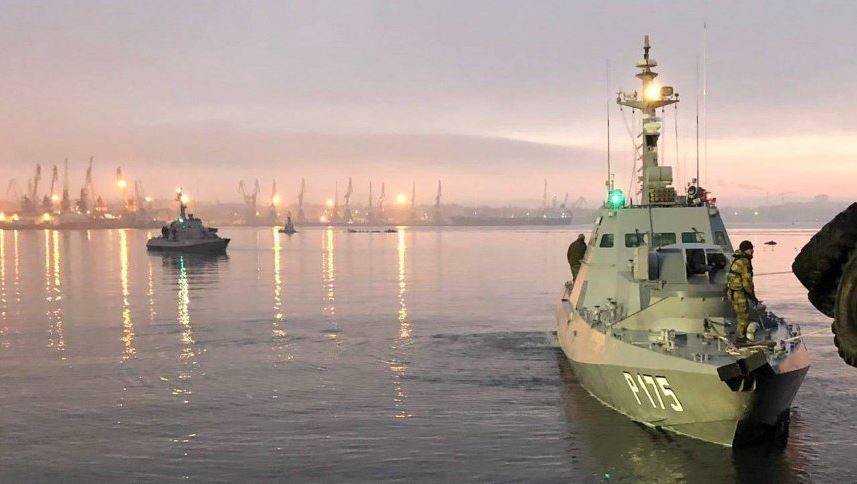U.S. Must Aid Ukraine in Resistance Against Russia
Russia’s new maritime strategy attempting to strangle Ukraine must be stopped by NATO, specifically the United States. (Courtey of Flickr)
By Collin Bonnell
Around the time my grandfather turned 17, he lied about his age to enlist in the U.S. Army. A Canadian by both citizenship and birth, he abandoned his country of origin to fight for a nation which he credited with representing democracy on the world stage. During the war, he would serve with distinction at the Battle of Monte Cassino and at the Gothic Line, where he was wounded. Upon returning to the U.S., he embraced his new American identity.
My grandfather was one of millions of young men and women who embarked on America’s “Great Crusade” to liberate Europe during World War II. After the end of the hostilities in May 1945, the Americans rebuilt Europe through the Marshall Plan. Through this system, America ensured that Europe would avoid the outbreak of another war.
In the past few years, America has neglected these duties, taking a sharp turn inward and refusing to assert itself when faced with recent threats from an expansionist Russia—particularly its attempts to annex slices of Ukraine. In recent years, the pillars upon which peace in Europe were established have begun to fall one by one.
We cannot turn our backs on Europe now, lest we risk upending the democratic consensus which has brought peace and prosperity to a troubled corner of the world.
Europe is largely powerless to defend itself against these threats, due in part to America’s disarming of the continent in the years after World War II.
This occured when America agreed to serve as the primary armed power in Western Europe so that its allies could quell internal dissent and stem the rise of communism through the creation of large welfare states.
While we maintained stability in the region during the Cold War by keeping our armies deployed in Europe, after the fall of the U.S.S.R., we shifted our attention to the Middle East—tens of thousands of troops from Europe and creating a power vacuum. During this time, the other Western Powers further decreased military spending, while NATO expanded to include the former communist states of Eastern and Central Europe.
The expansion of NATO angered Russia, which, under the leadership of Vladimir Putin, chose to reassert itself in the region by questioning the foundation of the postwar order in Europe, threatening the peaceful democratic consensus which has governed Europe for nearly 75 years.
Meanwhile, the Trump administration has publicly questioned whether it is treaty-bound to defend NATO allies that contribute less to the organization.
Russia’s threat to the postwar European order resurfaced on Nov. 25, when Russia fired upon and illegally seized three Ukranian naval ships attempting to cross the Kerch Strait. In the following days, the countries exchanged accusations and raised tensions, with the Ukrainians imposing martial law and putting its military on alert for the outbreak of war with Russia.
Starting late last week and continuing through the weekend, as the Russian military slowly amassed 80,000 troops along its border with Ukraine, President Poroshenko of Ukraine has requested that NATO intervene. He suggest having Turkey seal the Bosphorus Strait by sending a small fleet to patrol the area around the neutral Azov Sea, which has become the most recent target of Russia’s attempts at territorial expansion.
If we allow Ukraine to fall, our democratic allies in Finland and the Baltic States will likely be Putin’s next targets. Finland and the Baltic states are members of the European Union, and the Baltic States are NATO members; the United States are treaty-bound to react to attacks on their territory as if they were to occur within the United States itself.
American intervention abroad has often been seen as exploitative, heavy handed and unnecessary. While this has occasionally been the case in the developing world, it has never been so in Europe—where our involvement has been nothing but beneficial for all parties involved. The United States has gained a system of reliable allies that has remained for almost 75 years, while Europe has gained a level of stability and peace unheard of since the Roman Empire.
Since 1945, the United States has served to fulfill my grandfather’s dream of a democratic global order.
The Long Peace which he and millions of others fought to secure should not be abandoned.
Collin Bonnell, FCRH ’21, is history and political science major from Hingham, Massachusetts.










































































































































































































